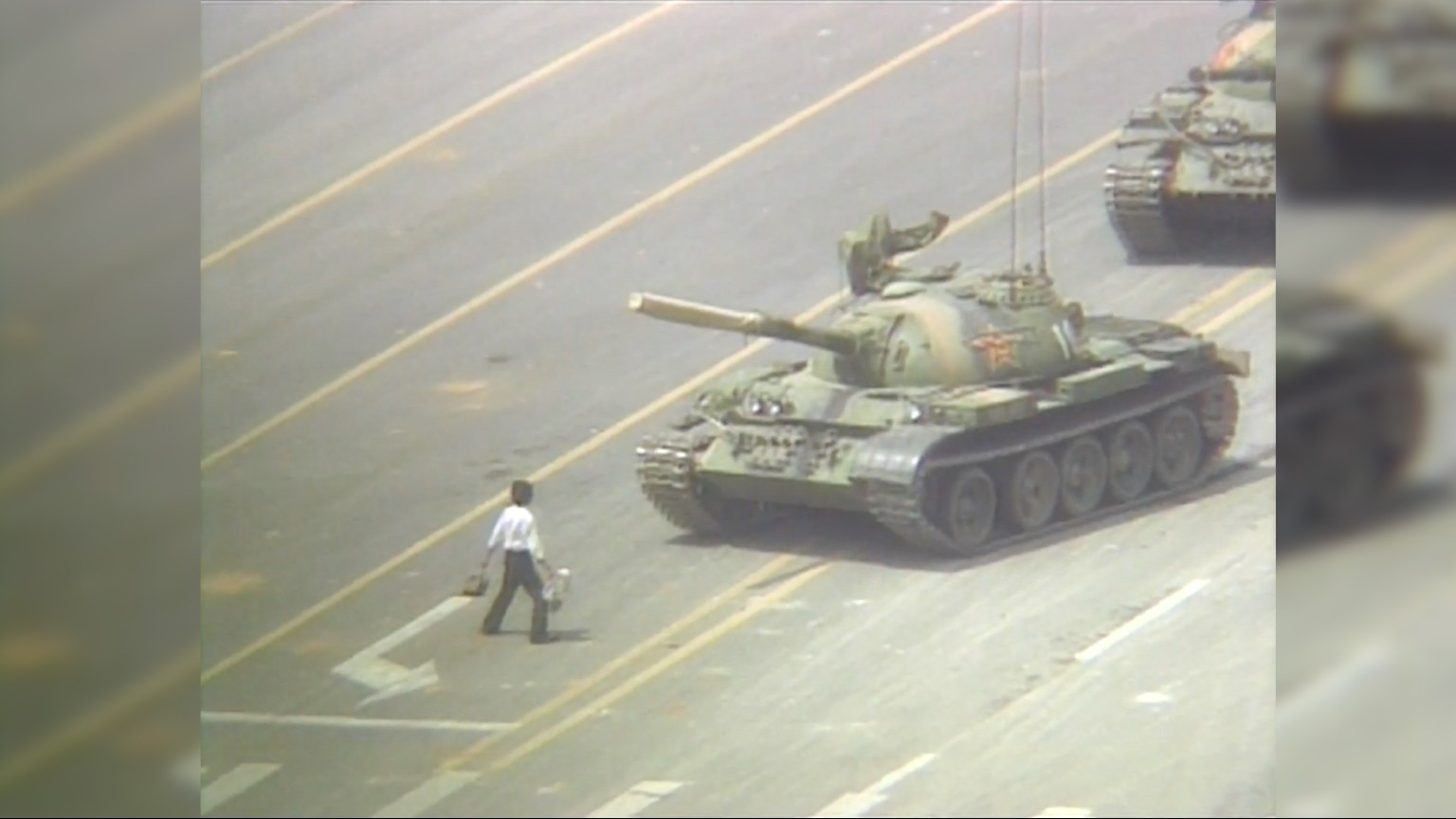On June 4, 1989, Chinese troops opened fire on thousands of student-led protestors who had gathered in and around the square calling for democracy. The government says 319 people were killed, but some say the figure was actually much higher.
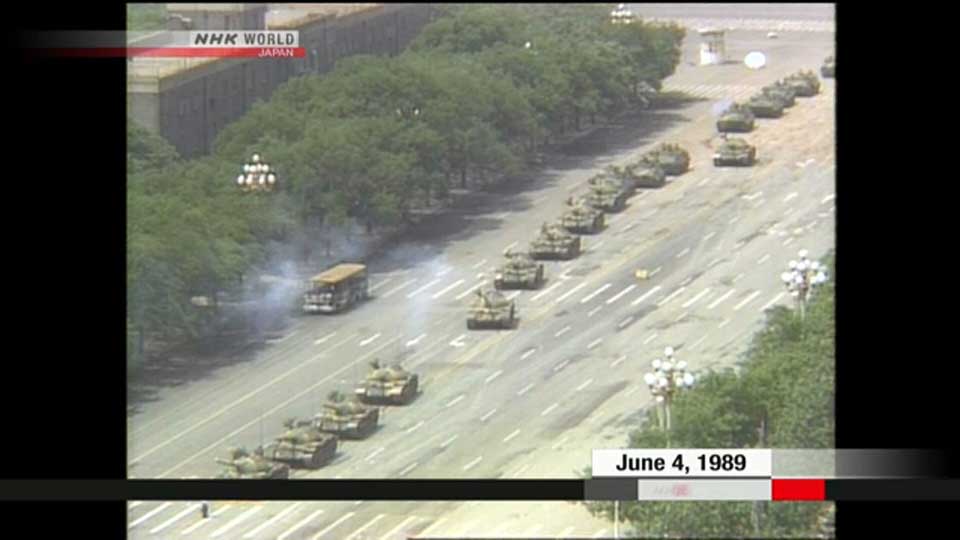
A group of victims' relatives called the "Tiananmen Mothers" posted a statement on its website in May signed by 114 people.
It calls on the government to make public the number and names of victims, compensate the victims and their families, and pursue legal responsibility for the incident.
However, people in China are unable to read the online statement as access to the site is blocked.
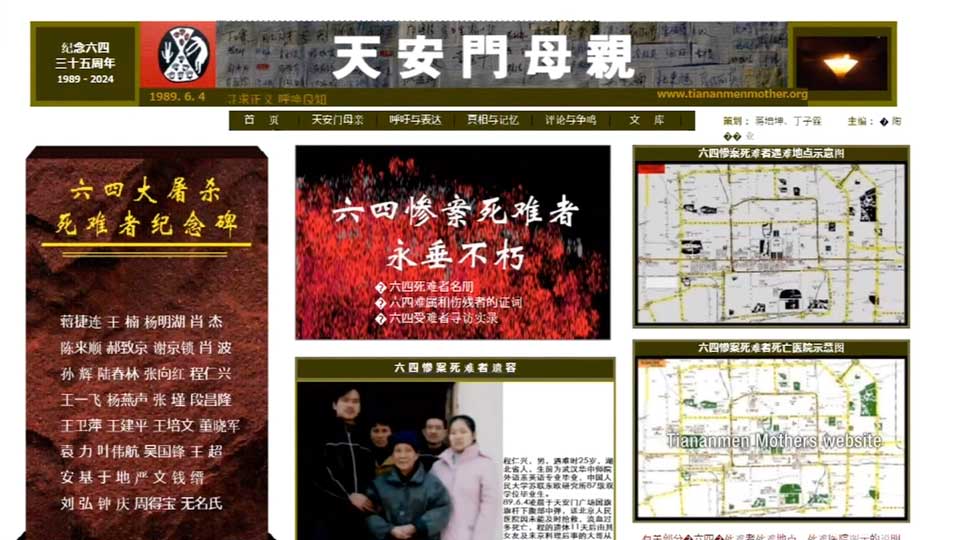
Public discussion of the incident is considered taboo. The group initially planned to mark the 35th anniversary by holding a memorial service at a member's home. But they gave up on the plan due to strict monitoring by authorities.
Victims' families call for truth, apology
"The way the government mobilized the military and the killing of people using force will lose trust," said You Weijie who lost her 42-year-old husband in the incident.
"No matter how much the authorities try to hide it, it's a historical fact that the crackdown happened," she told NHK in an interview in April.
70-year-old You is one of the leading members of the relatives' group. She said the government had been monitoring her activities more closely, and that since April she had been unable to communicate with several family members because her use of social media had been restricted.
She wants an official apology and the truth revealed about the actual number of deaths and the names of the people who issued the orders.
The government maintains that the incident was "turmoil" and that it made the right decision, something You says she will never be able to accept.
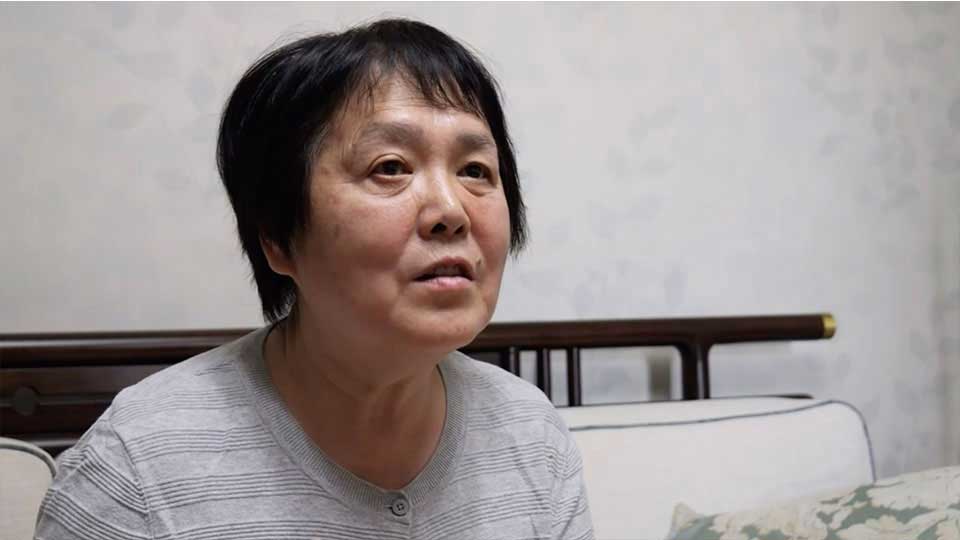
"35 years later, many Chinese don't know about the incident especially younger people. It's because the authorities have kept silent and are hiding the truth. I hope our voices will reach more people," You said.
An NHK reporter tried to contact her again at the end of May, but was blocked by security guards. The reporter was also unable to reach her on the telephone.
86-year-old Zhang Xianling lost her son in the incident. The 19-year-old aspiring journalist was shot in the head when he went to the square to report on the event.
His body was hastily buried in front of a junior high school near the site and found 3 days later. The government has never provided any explanation for his death.
"My son was killed without a reason. There should be an explanation. For more than three decades, the government has pretended as if it doesn't know anything. That is unacceptable," Zhang told NHK.
"I might not see this resolved while I'm still in this world, but as long as I'm alive, I will fight for the rights of my son."
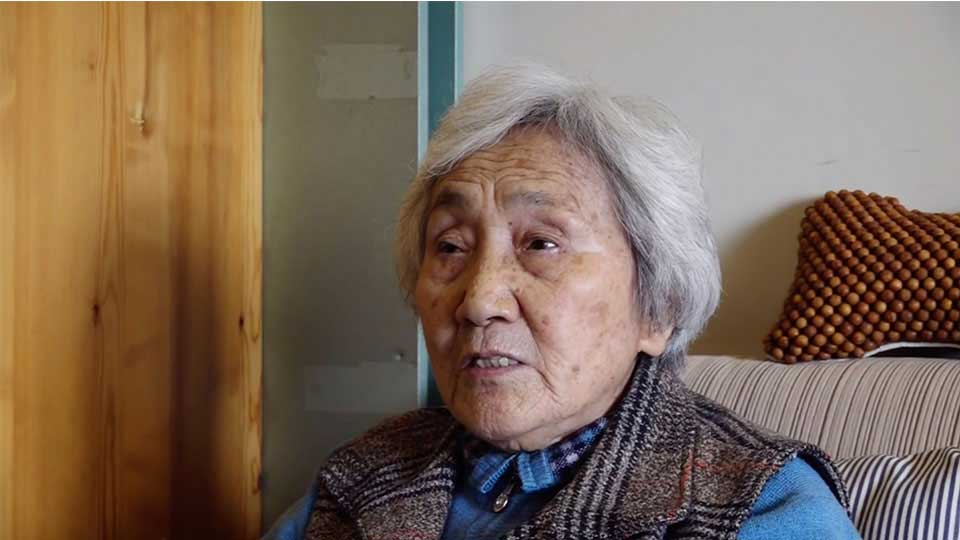
Chinese government reiterates its long-standing position
Asked about the incident at a regular news conference on Monday, Chinese Foreign Ministry spokesperson Mao Ning reiterated the government's long-standing position on the crackdown.
"The Chinese government has already come to a clear conclusion on the political turmoil that took place at the end of the 1980s," she said.
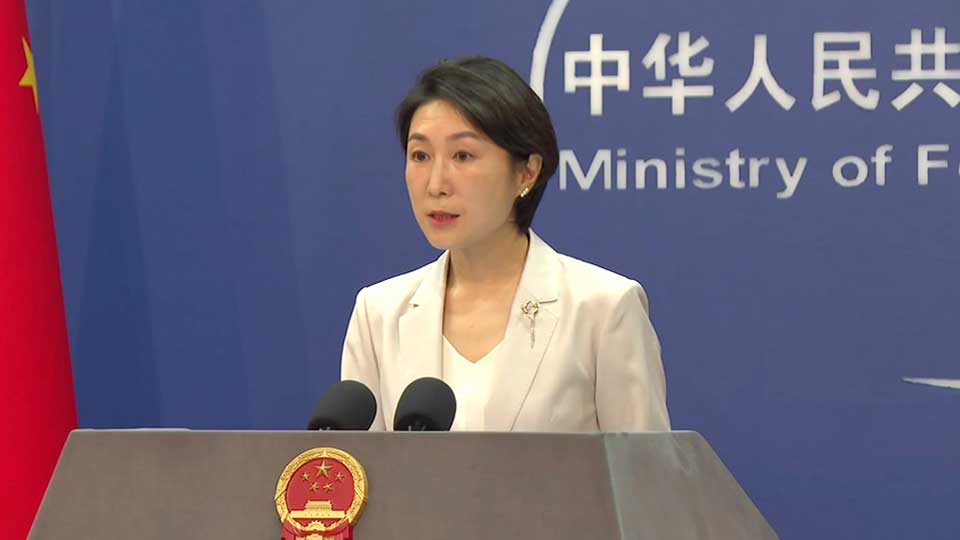
Gathering suppressed in Hong Kong
It is also becoming increasingly difficult for people in Hong Kong to mourn the victims of the crackdown.
Over the past three decades, an annual vigil has been held backed by Hong Kong's freedom of speech and assembly under the one country, two systems principle.
The event was held every June 4. Organizers say as many as 180,000 people attended in 2019.
But that would be the last such vigil before the Hong Kong National Security Law — designed to clamp down on anti-government movements — took effect in 2020. Since then, several pro-democracy activists who have organized memorial vigils have been arrested and charged.
As of Monday, Hong Kong police had arrested at least eight people for posting "seditious" messages related to the incident on social media.
Vigil held in Tokyo
Several dozen people, including Japanese human rights activists and Chinese- and Hong Kong-born residents, attended a vigil in Tokyo on Monday night.
The venue was decorated with a miniature replica of the "Goddess of Democracy," a statue built in Tiananmen Square that became a symbol of the protests.
Candles were also arranged to form the numbers "8-9-6-4," indicating the year and the date of the incident.
People gather in Tokyo to remember the victims of the incident.
"My sister was involved in student-led demonstrations elsewhere in China at the time. I cannot condone attempts by the government to make people forget about the incident," one participant from China told NHK.
Taiwan President: Respectful country would listen to its people
Taiwan President Lai Ching-te on Tuesday posted a message on Facebook marking the incident.
"A country that is truly respectful is one that allows its citizens to speak out. Any administration should be brave enough to listen to the voices of the people, especially those from the young generation," Lai wrote.
He said that only democracy and freedom can truly protect people.
Referring to Taiwan, he said it has transitioned from authoritarianism to democracy through the sacrifices and dedication of the preceding generations.
"We will continue to unite all forces to strengthen democracy in Taiwan, and to work with countries that share similar principles to create a better world."
Japan expresses human rights concern over China
Japan's Chief Cabinet Secretary Hayashi Yoshimasa said at a daily news conference on Tuesday that Japan is concerned about the human rights situation in China.
"The Japanese government believes that freedom, respect for basic human rights, and the rule of law are universal values, and that it is important that these are guaranteed in China," he said.
Beijing under tight security
On Tuesday morning, Beijing's Tiananmen Square was as crowded with tourists as usual but there was a heavy police presence.
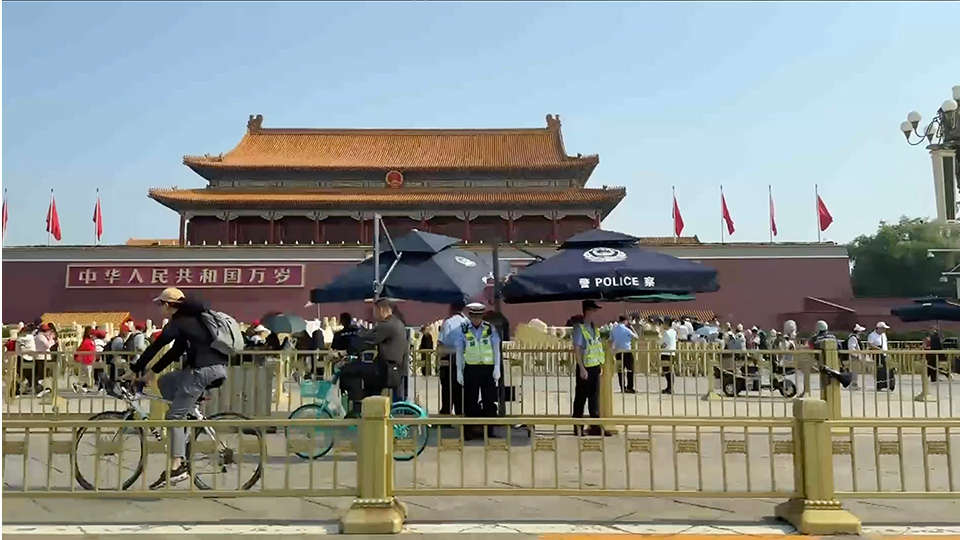
Around the country, the dissemination of information about the Tiananmen Square incident was being strictly controlled. A report on NHK's Japanese-language overseas channel, NHK World Premium, was blocked and replaced with color bars along with the words "abnormal signal".
A NHK TV crew was stopped by police as they attempted to visit a cemetery in a Beijing suburb where some of the victims are buried. The crew was told to leave immediately.
